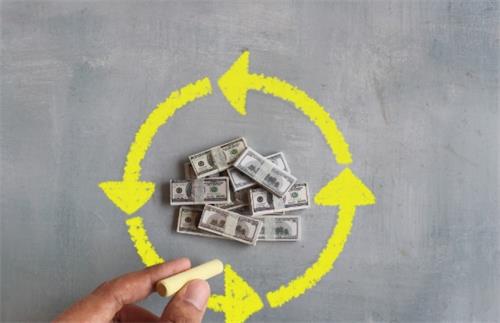What Is the Economic Cycle? How to Navigate Economic Fluctuations?
In modern economies, economic activity is not constant but follows cyclical fluctuations. These ups and downs are referred to as the economic cycle, marked by alternating phases of growth and decline.Whether for individual consumers, business owners, or government policymakers, the economic cycle plays a crucial role. But what causes these economic fluctuations, and what are the underlying factors behind them?
What Is the Economic Cycle?
The economic cycle refers to the periodic fluctuations in economic activity, marked by alternating phases of expansion (boom) and contraction (recession). It is typically measured using indicators such as Gross Domestic Product (GDP), unemployment rate, and inflation.
1. Recovery Stage: This is the transition from recession to growth. Businesses gradually resume production, consumer demand picks up, and investment increases.
2. Boom Stage: Economic growth reaches its peak, market demand is strong, unemployment is low, corporate profits are high, and inflationary pressures rise.
3. Recession Stage: Economic growth slows, corporate earnings decline, unemployment rises, investment decreases, and consumer confidence weakens.
4. Depression Stage: Economic activity reaches its lowest point, production and consumption drop significantly, unemployment soars, and deflation may occur.
Key Drivers of the Economic Cycle:
The economic cycle is influenced by multiple factors, including consumer demand, business investment, government policies, global economic conditions, and financial market trends. Shifts in these factors can accelerate or slow down different phases of the cycle.
Impact of the Economic Cycle on Individuals and Businesses:
1. For Individuals
Changes in the economic cycle have a direct impact on employment, income, and consumption. During economic booms, job opportunities increase, wages rise, and consumer confidence strengthens, leading to higher spending. In contrast, during recessions, unemployment rises, incomes decline, and people cut back on spending, further deepening economic contraction.
2. For Businesses
For companies, economic fluctuations affect sales, profitability, and market competition. During boom periods, businesses see higher demand and profits but also face increased competition. In recessions, declining sales and shrinking profit margins can force small businesses into bankruptcy. To navigate economic cycles, companies must adjust strategies and manage risks through diversification, cost control, and cash flow management.
How to Navigate Economic Fluctuations?
Although economic cycles are inevitable, individuals and businesses can adopt strategies to mitigate risks and adapt to changes.
1. Investment Strategies: Diversifying Risk and Staying Flexible
For investors, economic cycles introduce market uncertainty. Stock markets and real estate typically perform well during economic booms but may suffer during downturns. To manage risk, investors should diversify their portfolios rather than concentrate funds in one asset class.
2. Business Strategies: Adapting and Planning Ahead
Businesses must remain strategically flexible in response to economic cycles. During boom periods, companies can expand investment and market presence. During downturns, they should secure cash flow, optimize costs, and improve internal management to withstand financial stress. Additionally, continuous innovation and new product development help businesses stay resilient in changing market conditions.
3. Government Policies: Managing Economic Stability
Government intervention is crucial in stabilizing the economy. In recessions, governments may implement interest rate cuts, tax reductions, and increased public spending to boost demand and recovery. Conversely, during overheating economies, policymakers may raise interest rates and restrict credit to curb inflation and prevent asset bubbles.
Conclusion
The economic cycle is an inherent feature of market economies, serving as a natural mechanism for self-adjustment rather than a crisis. By understanding economic cycles, individuals, businesses, and governments can make informed decisions and remain resilient in a constantly evolving economic landscape.







